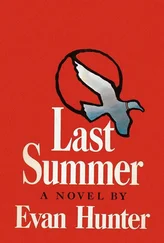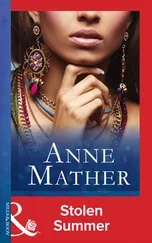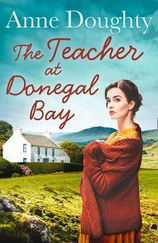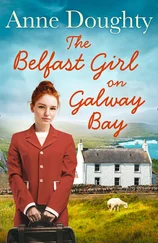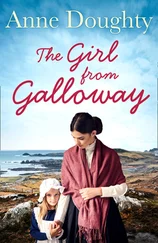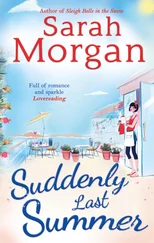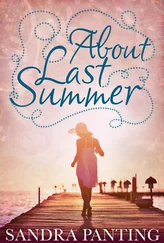My father, of course, was only a countryman, in her terms. She had been quick to forget that this particular countryman had designed and created both the house and its garden. Indeed, after all the years in which it was ‘her house’ and ‘her garden’, I had almost forgotten myself how much I loved the garden I had helped him to make. Since I stood looking over the familiar flowerbeds, the mug of tea still in my hand, I have wanted to be nowhere else. Through all the hours I’ve spent there, I’ve been so happy, working and listening, remembering things I haven’t thought of for years.
It was Great-aunt Minnie who used to tell me stories about my father. Back in the 1920s, he used to pass the site on which the house is built on his way from the small cottage where he lived to the primary school in Armagh. In the days before school buses, he had plenty of time to think as he walked. She said he started to plan a house on this hillside even then.
The year I was born, 1951, he bought the land. Steeply sloping and without planning permission, it was going cheap. Minnie said my mother thought he was mad. Even if he could ever afford to build on the land, the position was quite unsuitable. It was too far out of town, inconvenient for the shops and school. Worse still, it wasn’t among her own sort. All the neighbours would be Catholic. Later, when building did begin, she said her kitchen would be overlooked by cottages at the top of the hill and that the sitting room had a view of a dreadful old farmyard with a rusting, corrugated-iron hayshed. The other sort, of course. As one would expect.
He met her objections one by one. He bought her a small car and went on using his ancient bicycle to pedal to the shop in English Street where he sold seeds and fertilisers to men in big boots. He worked all the hours there were. If he wasn’t in the shop, he was in the garden. He terraced the slope to the road, built the stonewalls and the rockery, began planting trees and shrubs, laid out the rose garden and the vegetable plot, screened the cottages at the top with willows and the farm at the bottom with chestnuts and sycamores.
I learnt their names before I’d even started school. Sitting on the wheelbarrow drinking tea from his Thermos, I listened while he told me where all the different shrubs and trees were to go, what they liked, how they would grow and what a big girl I would be when they were all just right. That was before the building work started, of course. Once that began, we had our tea with the workmen in their stuffy wooden hut with its paraffin stove. One of them became a great friend of mine, an elderly Catholic called Mick from some unknown place called Mill Row. Until Mother found out, that was.
He was such a silent man, my father. Silent in himself, I mean. Beyond his work and Anacarrig, his greatest pleasure was his books. History and natural history were his great love, but he also enjoyed some poetry. I remember him reciting ‘Under the Spreading Chestnut Tree’, one day when William Coulter from Tamlaght came to call and found us planting saplings down by the road.
The other thing my father enjoyed was talking to country people like William Coulter. He was slow to get started, and so indeed was William, but with a little encouragement they would tell the most marvellous stories. I had no greater delight in those days than to sit in William’s forge, or the garden, or some unfinished room in the new house and listen to them talk of ‘the olden days’. Never ‘the good old days’, always ‘the olden days’.
My mother hated it when my father told his stories. Whether it was about the olden days or the events of everyday, immediately she got irritated, behaved as if he was somehow wasting time, idling when there was work to be done, and not looking to the future, to a bigger shop with a greater turnover and a higher income. Yet all the time he was creating a house well ahead of its time, stocking seeds and tubers of the newest varieties and planting a garden that only the future would reveal in its full character.
I supposed then it was because she was such a townie and so proud of being brought up in the city with all its life and bustle, that she objected to what she thought were ‘country ways’, but I’m not sure any more. Her hostility seems too deep for that. Sometimes I think she was standing over against the man himself, rejecting the deep sense of self from which all his actions flowed. It’s one of the puzzles in my life that I may never resolve.
It is almost dark now and the cars on the road below me are using dipped headlights. I can see them only momentarily as they pass the bottom of the drive. The seclusion of the garden is complete, as he said it would be.
The house was finished in 1958, when I was seven and Sandy just two. A year later, at the beginning of June, with the garden full of blossom, apple, pear, damson, flowering cherry and hawthorn, he collapsed behind the wooden counter of his shop in English Street, packets of seeds still in his large, square hands. He was dead before the ambulance got down the hill from the hospital.
Mother never forgave him.
And now the garden blossoms again. Another week and it will have reached the same point of growth he left behind that June morning. Some sprays of flowering cherry are out already, and the apple trees in the shelter of the house, and the hawthorn, the May blossom, blooming late in the very last week of the month.
That was one of the worst rows they ever had. If you can call it a row with someone as silently imperturbable as my father. Over the three ancient hawthorns on the right-hand side of the front garden and the broad damp area in front of them. Mother insisted the hawthorns were making the whole corner wet. Nothing would ever grow there, she said, and the gnarled roots were unsightly. Why didn’t he cut them down and clear the place up? He wasn’t surely going to let some ridiculous old superstition stop him. She’d never heard worse, a man with a bit of education talking about fairy-thorns.
But he didn’t cut them down. For a long time he searched around, hoping to discover the source of the spring he was sure was there. But all he found were two large pieces of worked stone that might once have fitted together. So he sank the two pieces in the bare ground among the hawthorn roots to make a sitting place for me. Then he created a small water garden, planting fern and marsh marigold, irises and kingcups.
I have one of those kingcups on my table in the window where I write my letters to Matthew and scribble notes for my work, a brilliant golden eye, looking at me, unblinking, bringing back memories long hidden away. All through my childhood, that small marsh garden with its two smooth, worn pieces of stone was where I played. I had almost completely forgotten the long hours I would spend there absorbed in conversation with one of my ‘friends’.
These friends were seldom actual children from my class at school, or from the cottages and farms nearby. My mother didn’t encourage Sandy or me to bring playmates home. But not having a real person never seemed to trouble me. I’d settle myself on one stone and talk to whichever friend had come to sit on the one opposite to me.
Once there was a little Red Indian girl. That must have been after I’d read the story of Pochahontas and her journey to England. Later, there was a girl who’d been with the children of the New Forest, but who didn’t get into the story. Then there was a Scottish lass who served in the kitchens of Dunluce Castle where my father had taken us on a summer outing.
The more I thought about my stones, the more I recalled the peaceful hours I’d spent sitting lost in reverie. How precious those solitary hours had been. As precious in their special way as the comfort and joy brought by those imaginary friends. Out of sight of the house and my mother’s critical eye I felt safe, yes, but there was more to it than that. There was a calmness about that small corner that made it seem quieter than the rest of the garden. It had, too, a feeling of security that enfolded me without any sense of enclosure. Certainly, I was never happier than when I was there, talking to my friend or just sitting dreaming, wandering through an inner world all of my own making, a world that grew and extended with everything I read or saw and with every story I ever chanced to hear.
Читать дальше
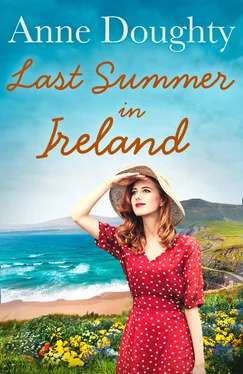
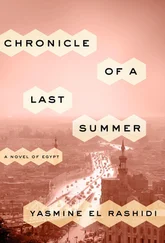
![Маргарет Миллар - Rose's Last Summer [= The Lively Corpse]](/books/384369/margaret-millar-rose-s-last-summer-the-lively-c-thumb.webp)
